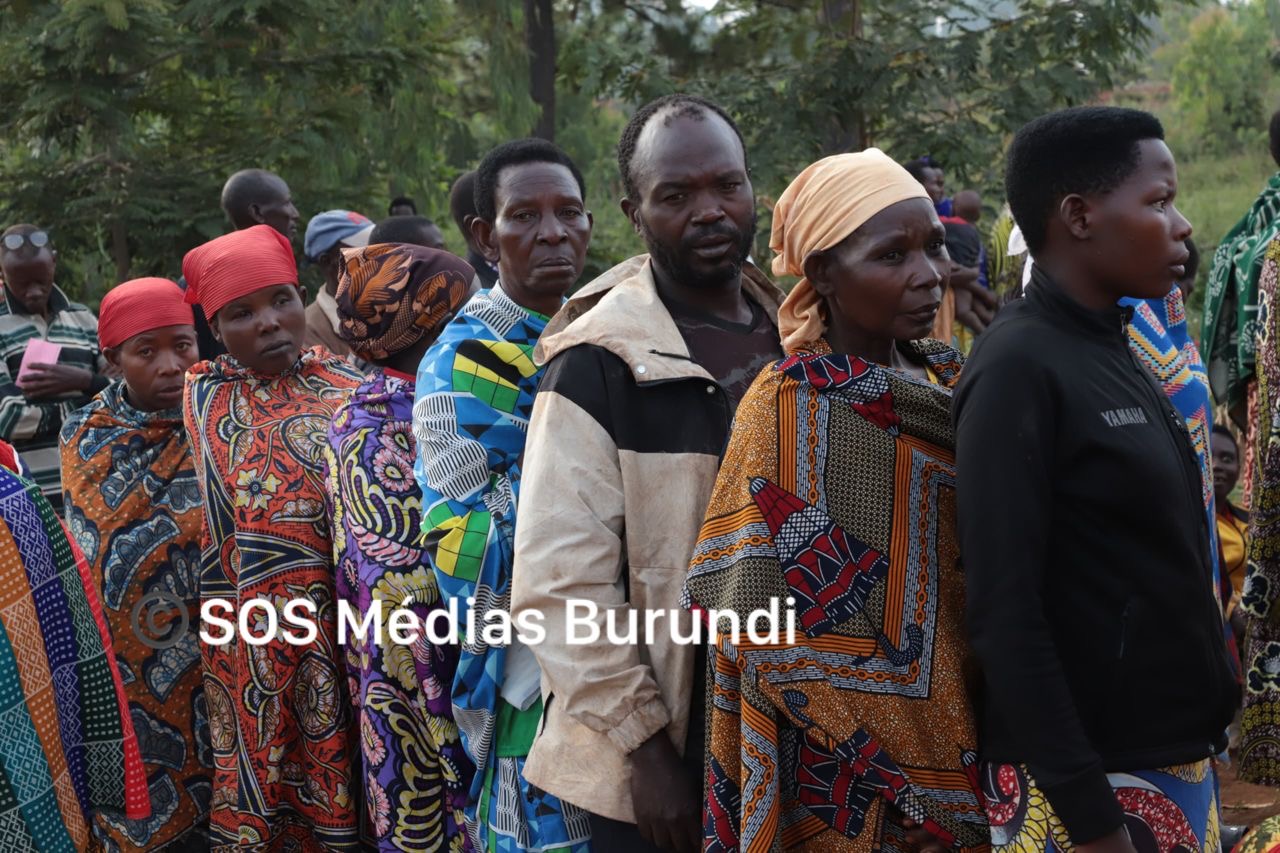June 5 elections : a facade of calm in the north and center, victory without suspense for the CNDD-FD

SOS Médias Burundi
Gitega/Kirundo/Ngozi/Karusi – June 5, 2025 – The district and legislative elections held on Thursday in the provinces of Kirundo, Ngozi, Gitega, and Karusi took place in a generally calm atmosphere. But beneath this calm facade, irregularities, pressures, and dysfunctions marred the process, confirming the CNDD-FDD’s hold on a ballot devoid of any real democratic stakes.
In Gitega province and surrounding areas, the ruling party appeared to have won the elections by a wide margin, with over 80% of the vote in many polling stations, according to preliminary figures. Voting began at 6:25 a.m. in the nine districts concerned and continued until 4:00 p.m. in apparent calm.
Despite a massive mobilization of its supporters, the CNDD-FDD faced little competition. Opposition parties such as UPRONA, the CNL, and the Burundi Bwa Bose coalition were represented sporadically. As for a dozen other political parties, including RADDES, RADEBU, RANAC, the PMP, and the UPD-Zigamibanga, they were completely absent from the process.
However, irregularities were reported : cases of multiple voting, a lack of coordination for polling station staff, and voters holding multiple cards. These malfunctions raise doubts about the transparency of the vote.
This closed electoral climate is part of a broader context of biased competition, particularly following the ouster of the main Hutu opponent, Agathon Rwasa. This exclusion was denounced by civil society and human rights defenders.
Incidents and pressure in the north of the country
In Kirundo province, a man in his fifties was arrested after tearing down the CNDD-FDD insignia. The local prosecutor announced a trial in flagrante delicto, illustrating the authorities’ firm stance against any attack on the ruling party. In the districts of Busoni and Bwambarangwe, only électoral observers of the CNDD-FDD, UPRONA, and the Catholic Church were accredited, raising doubts about the fairness of the political representation.
In Ngozi province, a UPRONA activist was arrested for filming inside a polling station, an act prohibited by the CENI. Added to this were restrictions imposed on several journalists, despite their official accreditation.
In Gitega, tensions were reported in the Magarama and Yoba neighborhoods. Some voters denounced threats from village chiefs linked to the CNDD-FDD. Whistles, often associated with the Imbonerakure (members of the CNDD-FDD youth league), were heard near several polling stations, heightening the climate of suspicion.
In Karusi province, irregularities, although more discreet, were not lacking. In Nyabikere and Shombo, young people close to the CNDD-FDD directed elderly voters to the ballot box, showing them where to place their finger. Some voters had not received clear instructions on the voting procedure.
Voter confusion and obstruction of information
In several localities, particularly in Kirundo, surreal scenes were observed : voters chanting victory after placing their finger on the photo… of the president, while only the party badge appeared on the ballot. This illustrates a lack of understanding of the electoral process, particularly among the elderly. Added to this was a forced mobilization in some villages, with reports of residents being forced to vote at dawn.
Moreover, in the northern border areas, many citizens only had access to Rwandan radio stations due to a lack of Burundian coverage – a situation that deprives these voters of reliable national electoral information.
A weakened democracy
Despite the apparent calm and visible mobilization in some polling stations, these June 5, 2025 elections confirm an already established trend : the absence of genuine political competition, partisan pressure, and persistent irregularities. For many, this is a formal exercise, without suspense, organized to legitimize the continued dominance of the CNDD-FDD.
The national community and the authorities are called upon to learn lessons from these failings. Because without transparency, effective pluralism, and equal access to information, Burundian democracy remains to be rebuilt.

